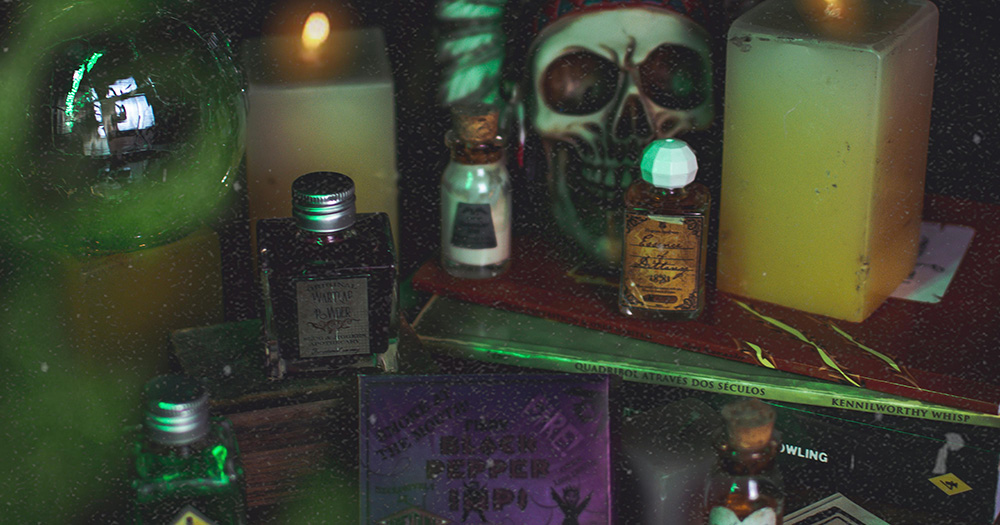Bubble, bubble, toil and transition! Transition? Throughout history, witchcraft, outside of the fantastical interpretation of cutesy magical dames or ugly hags, has become a touchy subject to talk about.
The use of intense stigma being passed around detailing witchcraft in a more evil and diabolical subtext has been much too common; yet those who are unfamiliar or stay within the more close-minded side of things, often neglect to look to the real power and meaning behind witchcraft and magick or the history and what it means to so many trans, gender-nonconforming or genderqueer folk who practise it.
At its core, witchcraft is an art or belief that is practised with one’s environment and the self in mind. And what about these core values reflect those of the LGBTQ+ community, specifically those under the genderqueer umbrella? The practice is rooted deeply in healing, in rebellion against the patriarchal norm and an affirmation of one’s truest self.
Does that sound familiar?
Gender identity, whether transgender specifically, non-binary or otherwise, has had a strong stand in the modern era as a community living ‘against the grain’, finding themselves and others in times of confusion and defiance against what was typical in the eyes of society.
In a sense, the queer communities these individuals feel most comfortable in could act as a coven, each finding power in their names, expressions… and perhaps a frustrated grumble when an unwelcoming mind gives up their attempts at putting others down.
But surely, expressions such as these couldn’t have existed recently, right? Witchcraft, and trans and queer identities, have existed for years, even centuries before words could even name.
Magick, using the ‘k’ to differentiate the spiritual practice from the performance magic, is a large part of Paganism in many different cultures. Magick and witchcraft predate the widespread influence of Christianity, and, wouldn’t you believe, genders outside of the heteronormative binary have existed for quite a long time as well!
In ancient Greece, a group of followers called the Galli was made up of primarily men to serve and praise the goddess Cybele, the mother of the gods. Followers would often dress in more feminine attire, curl their hair, smoothen their legs and even some would remove their testicles in the name of the cult they follow. Not only that, but Cybele herself was intersex! Even the gods had not been held down by strict gender values.
More than the fairytales of spells to turn someone into stone or the like, magick is used for a number of different aspects of daily life; many witches, no matter the specific name used, often gravitate toward love and healing magick rituals.
Healing magick, as its nature suggests, is used to heal and connect the one in practice and others they may pray or practise for. Many of those witches and practitioners are queer, the use of healing magick acting as a way to find their power in their transition.
Defiance against the heteronormative hold had started through fear and a desire for dominance, the desire to control magick with the desire of taking power. The 1960’s movement called W.I.T.C.H, the Women’s International Terrorist Conspiracy from Hell, came about to challenge and work past the patriarchal judgement of the time; even now, they still exist, fighting for LGBTQ+ rights.
As with being in the transgender and genderqueer community, there is no one correct way to be a witch; it is not just about having crystals, candles or a well-made setup for praise and practice. There are so many experiences, deities, places and distinctions of witchcraft, whether wicca, swynwraig, witch or other to be, to believe and to experiment with.
Just the same with your gender identity; surgeries, means of dress and expression are only parts of finding and expressing one’s gender. It is up to the individual, their experiences and their journey in finding their true, authentic selves to have a say in their placement in life, and that is what makes it magical.
© 2024 GCN (Gay Community News). All rights reserved.
Support GCN
GCN is a free, vital resource for Ireland’s LGBTQ+ community since 1988.
GCN is a trading name of National LGBT Federation CLG, a registered charity - Charity Number: 20034580.
GCN relies on the generous support of the community and allies to sustain the crucial work that we do. Producing GCN is costly, and, in an industry which has been hugely impacted by rising costs, we need your support to help sustain and grow this vital resource.
Supporting GCN for as little as €1.99 per month will help us continue our work as Ireland’s free, independent LGBTQ+ media.
